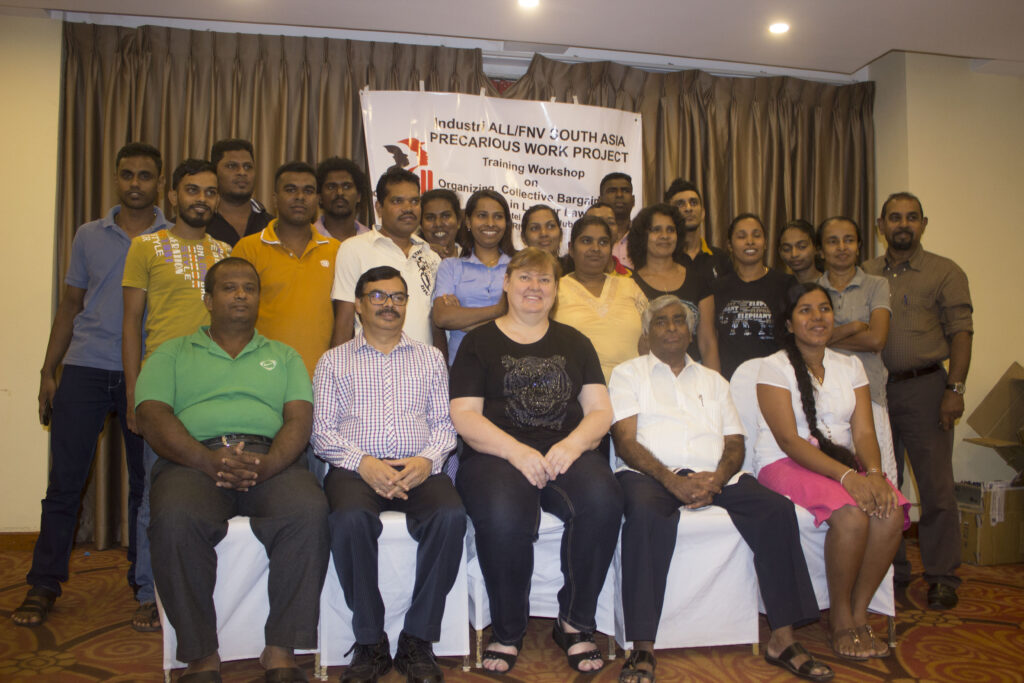Read this article in:
English
21 July, 2016Workers in Sri Lanka revealed experiences of violence, sexual harassment and dangerous working conditions, during an IndustriALL Global Union workshop in Negombo on 11 and 12 July.
Twenty-five trade unionists, including eight women, participated in the workshop, which is part of the precarious work project in Sri Lanka run by IndustriALL and Dutch affiliate FNV.
The women participants said violence and sexual harassment was a virulent problem in the free trade zones where they work. Women who complain to management about the issue either lose their jobs or come under extreme pressure to withdraw or underplay their grievances, said the women at the workshop.
During discussions about working conditions, participants reported a severe problem with chemicals. Many of the workers handle toxic chemicals, which burn their skin. One young woman complained that her hair was falling out, and others linked the chemicals to cancer in workers.
However, it is difficult for workers to know whether or not the chemicals they are using are dangerous, because the labels on the chemical containers are pasted over.
Monika Kemperle, IndustriALL’s assistant general secretary, took part in the workshop and also visited a group of workers, living in the free trade zone. She found that two to three people were living in a small single room, with toilets and bathrooms located outside the accommodation. Most of the workers she met were very young.
The workshop – entitled ‘Precarious work – organizing, collective bargaining and trends in the labour law’, also covered topics such as maternity protection, women’s role in the workplace and women in leadership. Both men and women were interested in learning more about maternal and parental leave.
Kemperle, who is also IndustriALL’s director for women, said:
“If women are to free themselves from the burden of violence and sexual harassment, women’s demands must be included in collective bargaining agreements with employers. We can only do this if women have a say in negotiations and that means more women in leadership positions in unions.”



